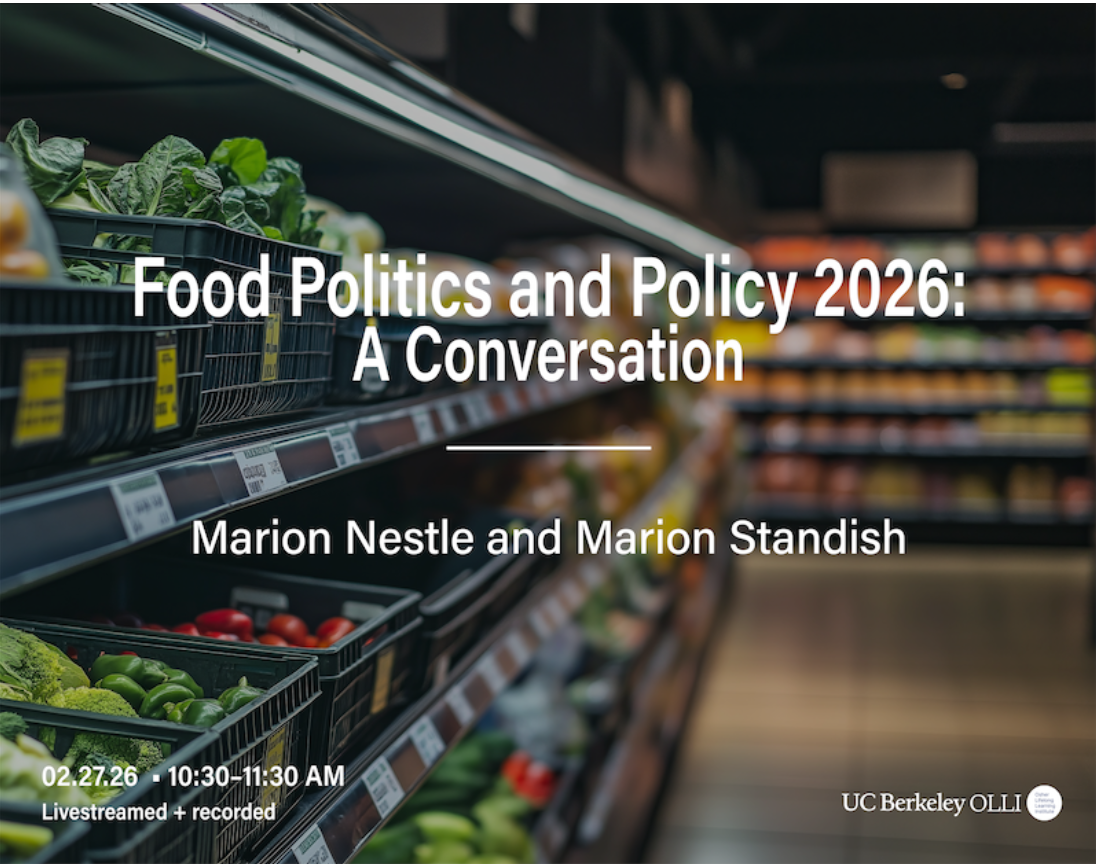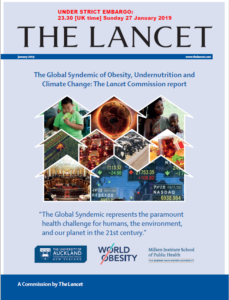Food Politics and Policy 2026: A Conversation with Marion Nestle and Marion Standish.

The Lancet has been busy. Last week, it published a blockbuster report on the need for worldwide dietary changes to improve human health and that of the environment. I posted about this EAT-Forum report on Friday.
Now, The Lancet releases yet another report, this one taking a unified approach to dealing with the three most important nutrition issues facing the world: Malnutrition (undernutrition), obesity, and the effects of our food production and consumption system on the environment and climate change—for which this report coins a new term: The Global Syndemic.

This report breaks new ground in identifying the food industry as one of three main barriers to ending this “Syndemic.” I’ve added the numbers for emphasis.
Wow. This is telling it like it is—at long last. From the press release:
- A key recommendation from the Commission is the call to establish a new global treaty on food systems to limit the political influence of Big Food.
- The food industry’s obstructive power is further enhanced by governance arrangements that legitimise industry participation in public policy development, and the power that big corporations have to punish or reward governments by relocating investment and jobs.
- Regulatory approaches to product reformulation (eg. salt and sugar reduction), labelling and marketing to children are needed because industry-led, voluntary approaches have not been effective.
Yes!
The documents
The press
▪ The Guardian
▪ The Times (London)
▪ Irish Farmers Journal
Additional press, posted January 30
Newswires (syndicated in international outlets):
UK:
US:
Rest of world: